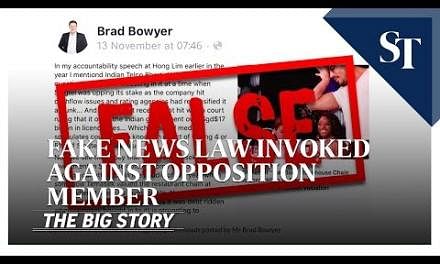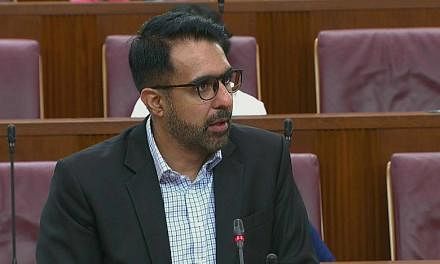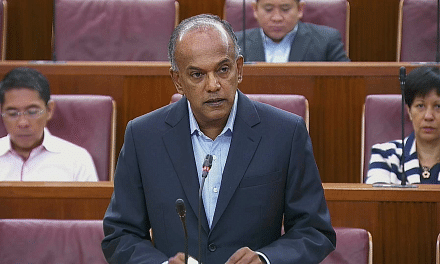SINGAPORE - A minister has to make a decision within two days of receiving an application against his direction under the proposed fake news law, said Home Affairs and Law Minister K. Shanmugam in Parliament on Tuesday (May 7).
In the event an appeal is filed in the High Court, a hearing must be held in six days.
Also, no court fees will be charged for the first three days.
In the face of criticism that it could be too onerous for individuals to seek redress under the Protection from Online Falsehoods and Manipulation Bill, Mr Shanmugam sketched how the appeals process would be made "fast" and "simple", with costs "kept very low".
Under the Bill, a minister can order an individual to remove content that is deemed false or run a correction alongside it, among other things.
An individual who does not agree will first have to comply, and can then appeal against the order.
To do so, he will have to first apply to the minister who made the decision to cancel it, and if this is unsuccessful, file an appeal in court.
Critics have said this could allow ministers to delay the appeals process indefinitely.
Giving an overview of the appeals process during the second reading of the Bill, Mr Shanmugam set out the timelines of the different stages, giving details of the number of working days each party has to respond.
He said the practice of having ministers decide on applications by aggrieved persons against their orders is consistent with the "usual position of exhausting administrative remedies before resorting to a judicial remedy".
After the minister decides in two days, an individual has up to 14 days to file his appeal in court.
Next, the court documents must be served no later than the next day on the minister, who has up to three days to file his reply in court. The hearing must be held no later than six days from the day the court receives the appeal application. In effect, an individual aggrieved by a minister's direction will have the opportunity to have his case heard in the High Court as early as nine days after appealing to the minister.
Mr Shanmugam said how long the court will take to decide on the case is a matter for the courts.
But the court will continue to have a general discretion to extend timelines, for instance, when an aggrieved person needs more time, he added.
To simplify the appeal process, standard forms will be used for filing the application to the minister and filing the appeal in court. The forms must then be sent to designated e-mail addresses, which will be provided.
This way, people can present their own arguments instead of hiring lawyers, said Mr Shanmugam.
He reiterated that costs would be kept "very low", with no court fees for three days of hearing, although further days will be charged at the usual rate.
But the courts will have the power to waive fees, he added, as he sought to dispel the worries that it would be difficult to challenge a minister's decision.
He warned that this should not be taken as a licence to abuse the process, and the courts will have the usual powers to deal with those who do so.
Details of the appeal process will be spelled out in the subsidiary legislation of the law, said Mr Shanmugam, for that is where procedural and administrative details are set out.
Typically, laws passed do not come into effect until after the subsidiary legislation is in place.














